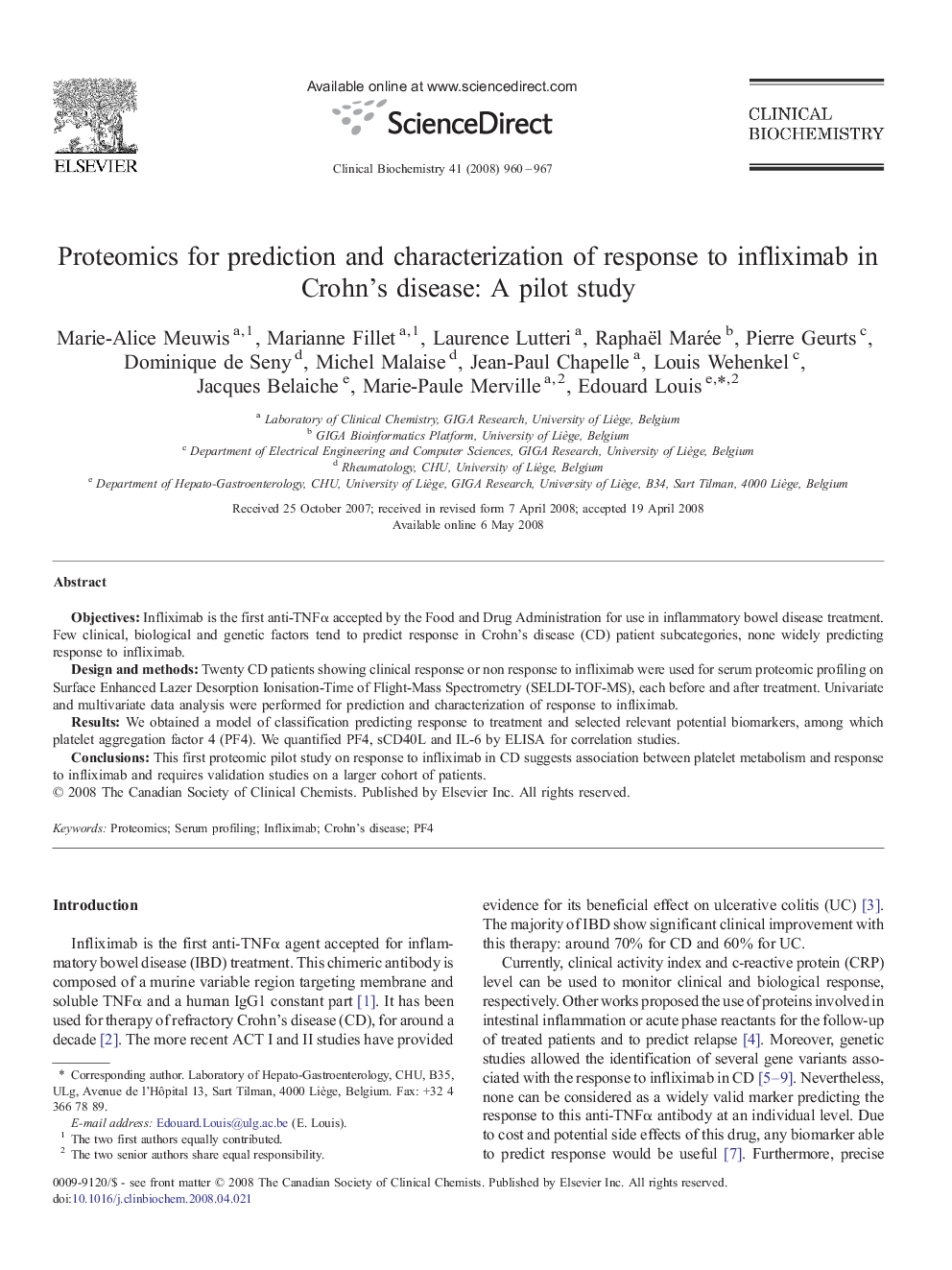| Article ID | Journal | Published Year | Pages | File Type |
|---|---|---|---|---|
| 1970252 | Clinical Biochemistry | 2008 | 8 Pages |
ObjectivesInfliximab is the first anti-TNFα accepted by the Food and Drug Administration for use in inflammatory bowel disease treatment. Few clinical, biological and genetic factors tend to predict response in Crohn's disease (CD) patient subcategories, none widely predicting response to infliximab.Design and methodsTwenty CD patients showing clinical response or non response to infliximab were used for serum proteomic profiling on Surface Enhanced Lazer Desorption Ionisation-Time of Flight-Mass Spectrometry (SELDI-TOF-MS), each before and after treatment. Univariate and multivariate data analysis were performed for prediction and characterization of response to infliximab.ResultsWe obtained a model of classification predicting response to treatment and selected relevant potential biomarkers, among which platelet aggregation factor 4 (PF4). We quantified PF4, sCD40L and IL-6 by ELISA for correlation studies.ConclusionsThis first proteomic pilot study on response to infliximab in CD suggests association between platelet metabolism and response to infliximab and requires validation studies on a larger cohort of patients.
